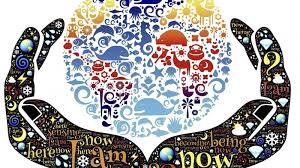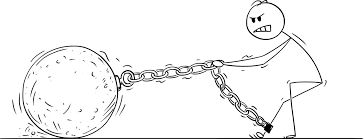Let’s Talk About Value…

Defining value is complicated because values are internal. We write them in our narratives and they, in turn, show people who we are. Values can change when things happen to us and around us, but values are always our own. We choose them, put them on, and wear them. Yes, wear them where everyone can see what we are from the inside out. Value is the sense we make out of the puzzle pieces that are our feelings, thoughts, likes, dislikes, priorities, and sense of belonging.
Devaluation takes place in many ways, but it is usually about finding flaws or exaggerating negatives in another person. It is approaching someone, making a judgement about them, and stomping out their essence.

It may start small: “Don’t touch that dog; it’s been on the street and probably has flees.”
It grows bigger: “Her hair is greasy; she has cooties.”
We add other people’s values: “He’s wearing pink he’s gay.” “She’s had sex; she’s going to hell.”
And finally, devaluation becomes a monster.

With our own values we decide how others should live and behave and talk. Devaluation is killing relationships, causing pain, and negatively affecting our mental health.
The World Health Organization tells us that approximately 280 million people in the world have depression, and 4.1 million of those people are adolescents aged 12 to 17 in the United States.

Depression is a feeling of worthlessness, and it can hit us when we are dealing with death, illness, addiction, abandonment, broken relationships, and devaluation.
We have seen a lot of death and illness over the last few years and things are very different. Schools are different, jobs are different, relationships fall apart, and we are all struggling.

Crisis centers report that suicide is the third leading cause of death of people between the ages of 15 and 24.
5,000 young people complete suicide in the U.S. each year.
I see a lot of adults who judge generationally without knowing anything about the person who they’re talking about. It is rampant. It is wrong.
“They just don’t want to work.” “They are just copying all the other kids who are…” “They are always on their phones.”

Do any of these phrases sound familiar? If they do, you may need to check your own belief system. Stereotyping is dangerous.
So how do we respect another’s value instead of being part of the devaluation machine? I’m glad you asked. Here are my top 5 suggestions.
- Make a list of your biases. We all have them so don’t lie to yourself. Write them down, talk about them with your best mate, and know them well.
- Do not apply your biases to another person. Your biases are yours; just as your values are. Everyone you meet has their own biases and values just like you.
- Approach people with kindness and respect.
- Get to know the person you are talking to by listening and asking questions.
- Engage in activities that you both enjoy while resisting putting your values on the other person.

If you look for the good, even in those so different from you that you don’t understand them, you can see the good. Respect that the being in front of you has feelings, values, and biases just like you do.
